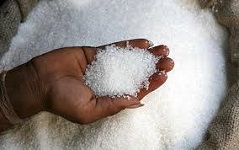The African Sugar Development Task Force (ASDTF) called on the African Continental Free Trade Area to ensure a level playing field for African sugar producers as member state negotiators aim to finalise trading rules under the African Continental Free Trade Agreement (AfCFTA) by January 2021.
The call is made today during a webinar hosted by Sugaronline, “Aligning the sugar industry with the African Continental Free Trade Agreement. “The African sugar industry has a unique opportunity—right now—to pivot itself and look inwards, rather than outwards as it has done for more than a century” said ASDTF Interim Executive Director Mulhim Eltayeb during the webinar with AfCFTA Secretary General Wamkele Mene and chaired by International Sugar Organization Executive Director José Orive.
“The AfCFTA provides a unique opportunity to create preferential markets for African products within the African continent, facilitating preferential trade amongst member states, and reduce or eliminate high tariffs that have restricted intra-continental trade over decades,” said Eltayeb.
At the webinar, ASDTF launched a policy paper entitled “African Sugar for Africans” which outlines the opportunities for the African sugar industry should the AfCFTA negotiations be concluded in a way that supports, rather than hinders, its trade and development. S&P Platts data shows a continental sugar deficit of more than 11 million metric tons in 2020 while the International Sugar Organization and the UNFAO estimate the deficit could reach 14 million tons by 2030 under a status quo scenario.
Today, that gap is filled predominantly by Latin American, European and Asian imports. But with the right policies in place under the AfCFTA, that demand could be filled with African-origin sugar.
Africa has the natural resources to fill the growing supply gap, but it is lacking policies required to develop fair intra-African sugar trade flows, increase demand for African-produced sugar and attract billions of dollars of foreign and regional investment into the sector which in turn will create thousands of new direct and indirect jobs in:
• Greenfield sugarcane production
• Brownfield sugarcane mill revitalization
• Sugarcane-based biorefineries with diversified products
• Destination sugar refineries in land-locked markets, sourcing inputs from within the continent
• Other downstream industries using cane, sugar or derivatives as feedstock

